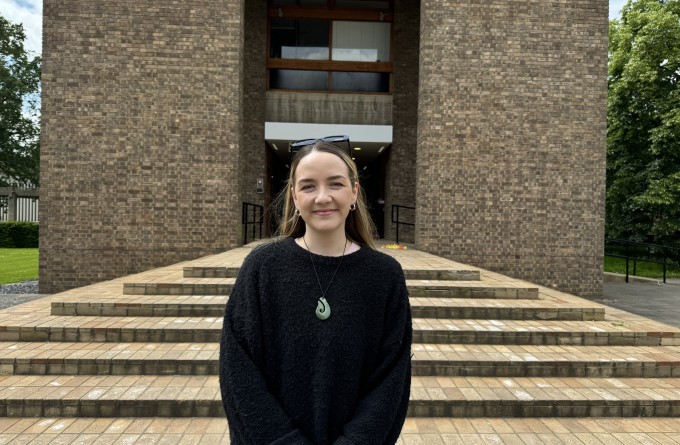31 May 2024
New Zealand’s RNA technology platform, a collaborative effort to advance RNA technologies in New Zealand, has appointed Malaghan scientists Dr Rebecca McKenzie and Dr Lisa Connor as pillar leads.

Dr Rebecca McKenzie, Dr Lisa Connor
These leadership appointments are a key milestone in laying the groundwork for the new platform. Seven pillar leads have been established to cover the processes involved in researching, testing and implementing RNA technologies to benefit New Zealand.
“Inspired by the success of mRNA Covid-19 vaccines, the platform aims to build RNA technologies that cantreat cancer, autoimmune diseases, infections and rare diseases,” says Professor Kjesten Wiig, co-director of the RNA Platform and deputy director of the Malaghan Institute.
“Rebecca in her role as pillar lead of quality control and Lisa leading preclinical efficacy will be responsible for developing and driving work programmes that will lift New Zealand’s capability in RNA production, characterisation and use.”
Dr McKenzie currently leads the molecular biology core within the Hugh Green Cytometry Centre at the Malaghan Institute, working to identify and adopt new technology platforms. She has led work with national and international collaborators across disciplines to establish mRNA vaccine technology as a tool for researchers.
Dr Connor is a cellular immunologist at Te Herenga Waka – Victoria University of Wellington and head of the vaccine evaluation team for Vaccine Alliance Aotearoa New Zealand – Ohu Kaupare Huaketo. She leads a research team which investigates the immunobiology of vaccination, specialising in mucosal vaccines and harnessing mRNA technology to develop smarter antigens.
The platform is being funded by a $70 million government investment over seven years. So far, the platform has awarded grants to projects around the country, encompassing a diverse range of areas within RNA research, including the development of mRNA vaccines, exploration of disease drivers and the formulation of RNA therapeutics.
After this initial phase, the platform will select projects that show the greatest promise to take to the clinic to develop into therapies.
“The platform aims to build New Zealand’s capability to build RNA-based medicines, encourages international teamwork among scientists, and ensures rapid vaccine development for future pandemics, benefiting both human and animal health,” says Professor Wiig.
“It's an exciting time for New Zealand science. This platform grants us the freedom to develop innovative solutions for our unique challenges, solutions that could go on to make an impact globally.”
Related articles

Dr Michelle Linterman: Asking the age-old question
30 April 2025

Kjesten Wiig: bringing life-changing treatments to life
27 February 2025

Fast Start grant to explore and establish next generation RNA technology
7 October 2024

Malaghan RNA researcher named KiwiNet Emerging Innovator
4 September 2024

Rejuvenating the ageing immune system
17 July 2024

Kia Niwha Leader Fellowship for Malaghan vaccine researcher
6 May 2024
